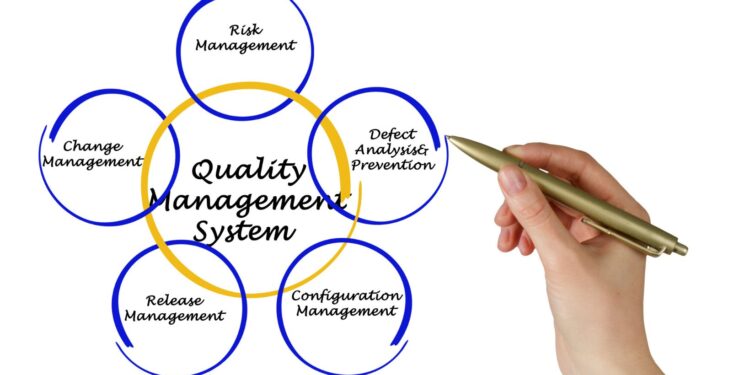What is QMS? A Quality Management System is what organizations use to achieve their quality objectives through a set of documents, processes, and workflows designed to do so. QMS provides help through automation which puts coordination to a higher level that eventually results in better productivity which is a consequence of the fact that rarely any part of the production process gets missed. With a paper-based process, mistakes were more than often. They’re eliminated through digitalization ensuring an unprecedented level of quality in any organization where it’s applied from the moment it’s first used going forward.
What Makes it so Important?
What makes a Quality Management System so important is the fact that its focus lies in constant improvements of workflow, production process, and the product itself within any organization. With QMS continuity inside an organization is almost guaranteed, and achieved consistency is what leads to more satisfaction from the customers with the product developed and pushed to the market. A happy customer leads to better reviews that generate more loyalty from people purchasing your goods or services which heavily reflects on the revenue. If you’re looking for your organization to grow in every domain, applying a Quality Management System is vital for success.
This software always aims to make improvements inside an organization by providing everyone involved with a high level of consistency. The already established processes are leveled up by simply giving everyone a better guide on what to do, when, and how. With the added level of visibility folks involved in the process will be able to trace their work and progress, making it better and more streamlined avoiding nonconformance.
Any company that assumes that the problem of quality exists will find it easier to pinpoint it with an installed QMS. With proper action, the issues of old will be minimalized and with time fully erased.
7 Principles of QMS
To ensure that the Quality Management System you’re applying works, it needs to honor these seven principles:
1. Customer Focus – As its name suggests this system needs to be focused on quality management that will eventually find its way towards customer satisfaction. The ultimate goal is not only to meet the customer’s expectations but to also exceed them.
2. Leadership – Within the organization, there needs to exist a union of leaders and workforce. Together, they can align their purpose resulting in a more productive environment.
3. Engagement of People – No QMS will not work if it’s not applied equally to all levels of the organization. When everyone is on the same page, and fully engaged, the result will not be absent.
4. Process Approach – Living in the digital age requires that QMS is applied in electronic form. An Electronic Quality Management Service helps in achieving relationships between many different processes within the organization.
5. Improvement – Even without QMS constant improvement within a company is assumed. With it, a part of the process needs to be guaranteed and continuous improvement. When you have it, success will come in the same way.
6. Evidence-Based Decision Making – QMS requires everyone using it to rely on data, and make decisions based on hard evidence. This way, evaluation and analysis are leveled up leading to risk-free decision making.
7. Relationship Management – One of the wrong assumptions many people have about QMS is that it’s only used internally. Instead, it is also focused on building relationships with your external partners, nurturing existing relationships and creating new ones.


















